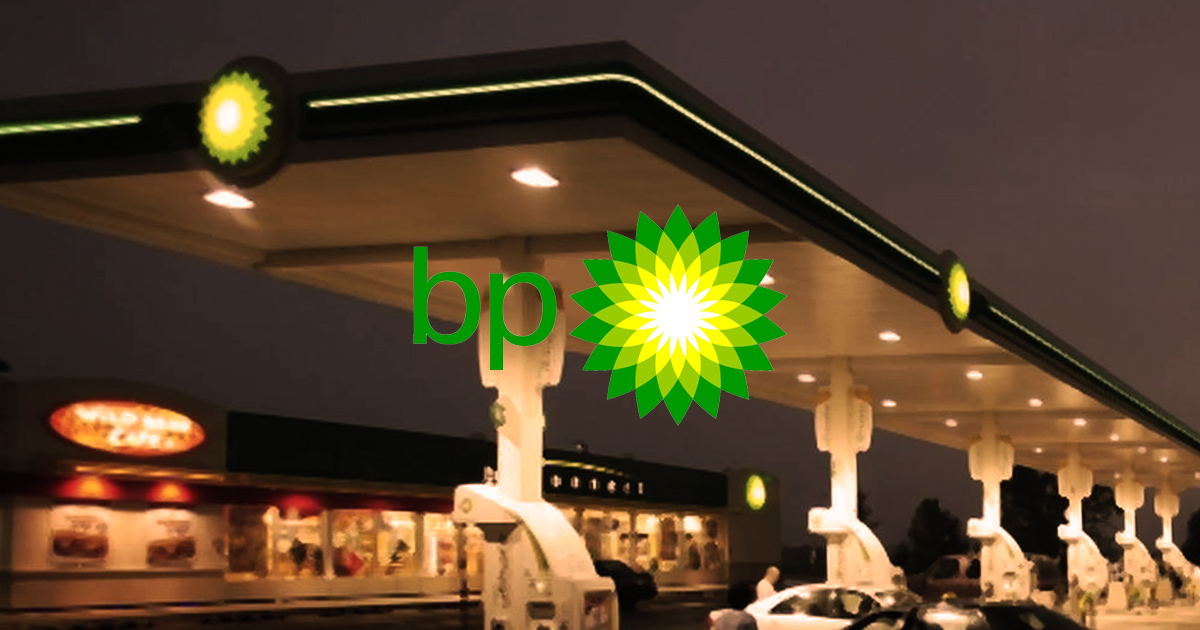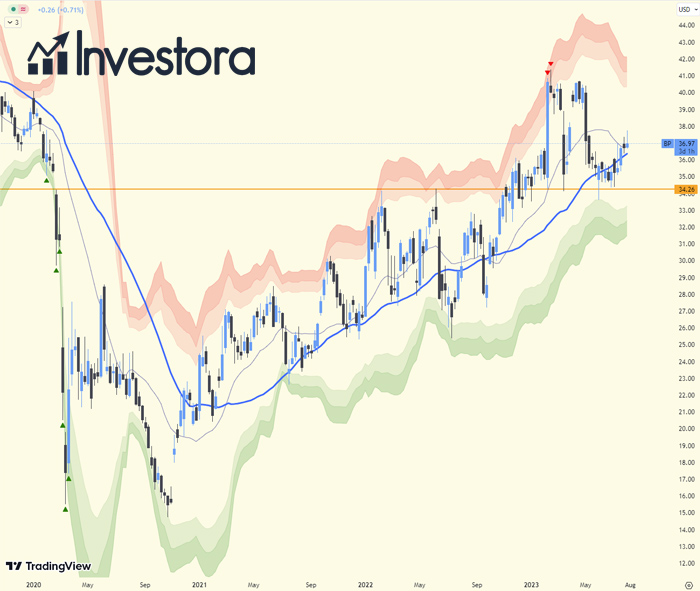
Understanding BP's Profit Dip in Q2 2023: Implications and Expectations
As oil and gas prices continue to decline, BP, a major player in the energy sector, has become the latest casualty, reporting a massive profit drop in its second quarter results for the fiscal year 2023. A sharp decline of 69%, the British petroleum behemoth witnessed a fall in profits to $2.6 billion from $8.5 billion a year ago.
Important: BP's 69% profit drop in Q2 2023 demonstrates the high sensitivity of energy companies to fluctuations in oil and gas prices.
This nosedive in profits has primarily been attributed to significantly lower oil and gas realizations, weakened refining margins, and augmented turnaround and maintenance activity. Furthermore, a sub-par oil trading result and a less-than-stellar gas marketing and trading result, compared to the first quarter, also contributed to the downfall.

Despite these testing times, Bernard Looney, CEO of BP, demonstrated confidence and determination. Emphasizing the company’s resilience, Looney described the situation as “another quarter of performing while transforming,” alluding to the company’s ability to maintain solid cash delivery amidst significant turnaround activity and weakened margins in its refining business.
However, BP is not alone in this turbulent journey. Other prominent energy firms like Chevron (CVX), Exxon Mobil (XOM), and Shell (SHEL) are also grappling with dwindling profits due to the ongoing slump in energy prices.
Remember: BP's struggles are indicative of a broader trend in the energy sector, suggesting similar impacts on other large energy firms.
Intriguingly, in spite of the profit slide, BP made two bold announcements - a 10% increase in its dividend to $0.0727 per share, and a $1.5 billion commitment towards stock buybacks before the release of its third-quarter financial results.
As news of these developments hit the market, the American Depositary Receipts (ADRs) of BP fell by 1.5% in early Tuesday trading. Nevertheless, they are still up for the year, suggesting that investors remain hopeful about the company's long-term performance.
Tip: Short-term market reactions often reflect immediate sentiment but may not always align with a company's long-term potential.
In the larger scheme of things, these occurrences underline the sensitivity of the energy sector to fluctuating oil and gas prices. As we continue to navigate through these volatile times, it would be interesting to see how BP and its peers strategize their operations to withstand the ongoing challenges and potentially leverage them into opportunities.
Frequently Asked Questions
How can traders respond to this news about BP's profit drop?
Traders can consider this news as a signal for potential volatility in BP's stock. While short-term traders might see this as a selling opportunity, long-term investors may interpret it as a potential buying opportunity given BP's resilience and the steps it is taking to manage the situation.
What does falling prices of oil mean for traders?
Falling oil prices generally indicate an oversupply or reduced demand in the market. This could lead to lower revenues for oil companies and potentially affect their stock prices. Traders can monitor these trends to inform their investment strategies.
How does BP's decision to raise its dividend amid falling profits impact investors?
BP's decision to increase its dividend indicates its confidence in generating enough future profits to cover the higher payouts. This might be seen as a positive signal by investors looking for steady income from their investments.
What are the broader implications of BP's profit drop for the energy sector?
BP's profit drop underscores the vulnerabilities of energy companies to falling oil and gas prices. It may prompt other firms to reevaluate their strategies to withstand such price volatilities.
How could BP's commitment to stock buybacks affect its stock price?
Stock buybacks often lead to a reduction in the number of outstanding shares, which could potentially increase the earnings per share and support the stock price.
Remember: Market volatility in response to news such as earnings reports is normal and to be expected. Long-term investor sentiment often relies more on overall company health and future potential.
- Share this article




